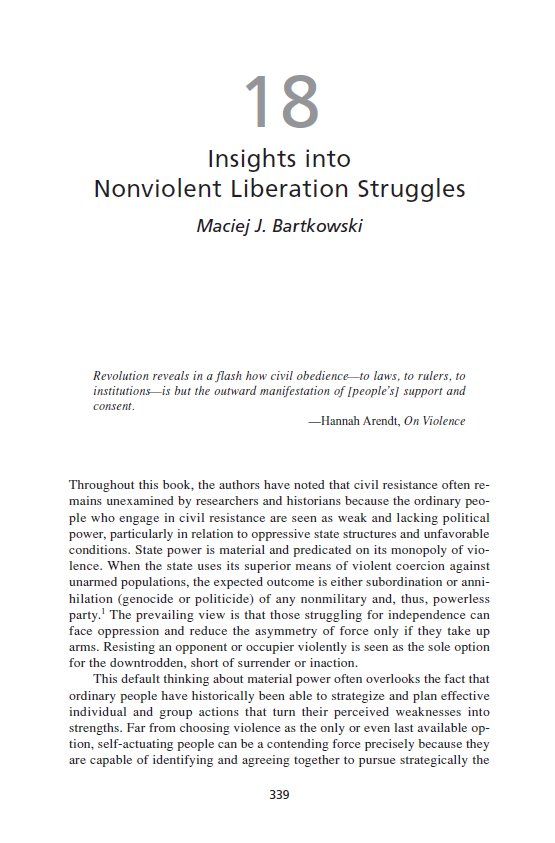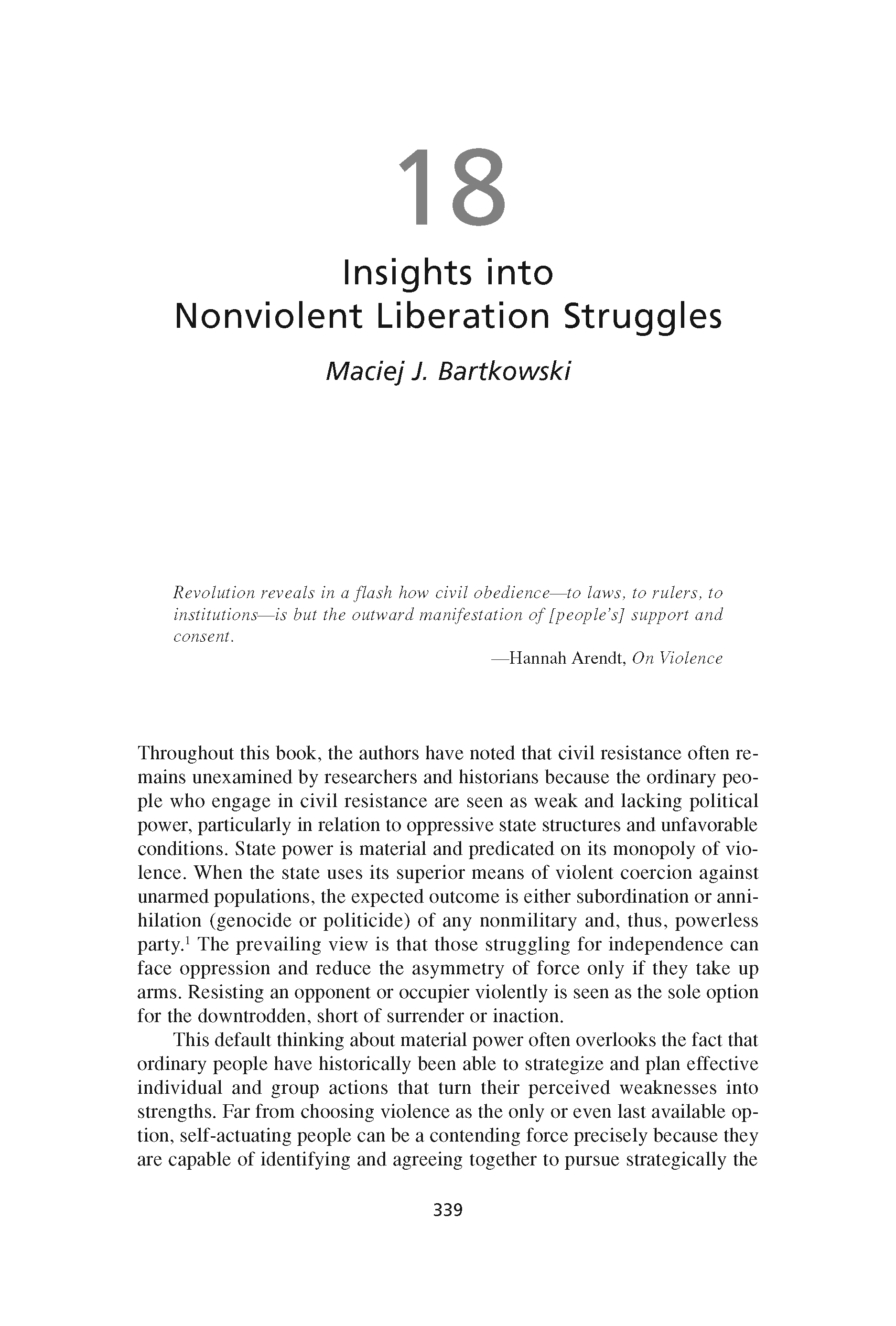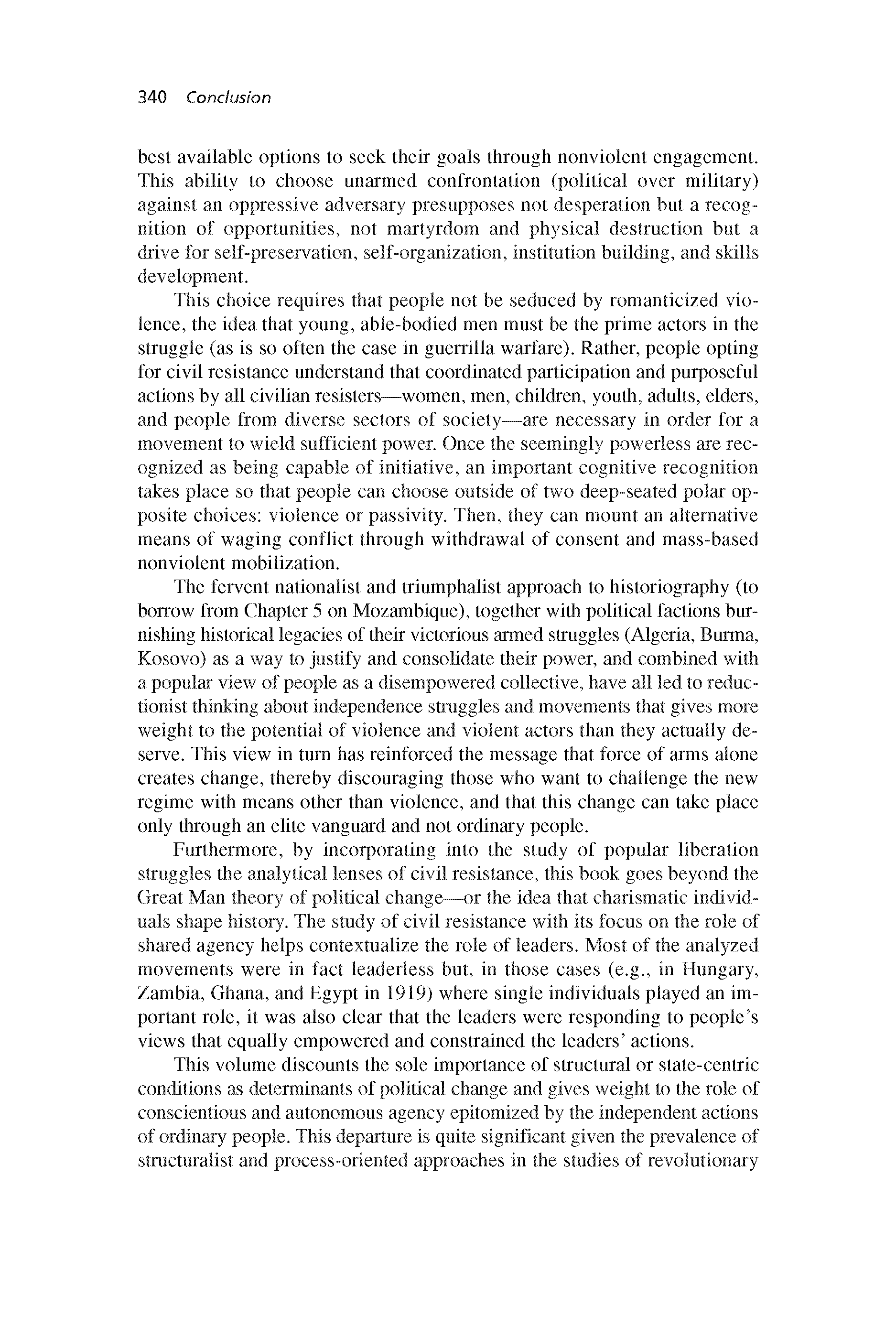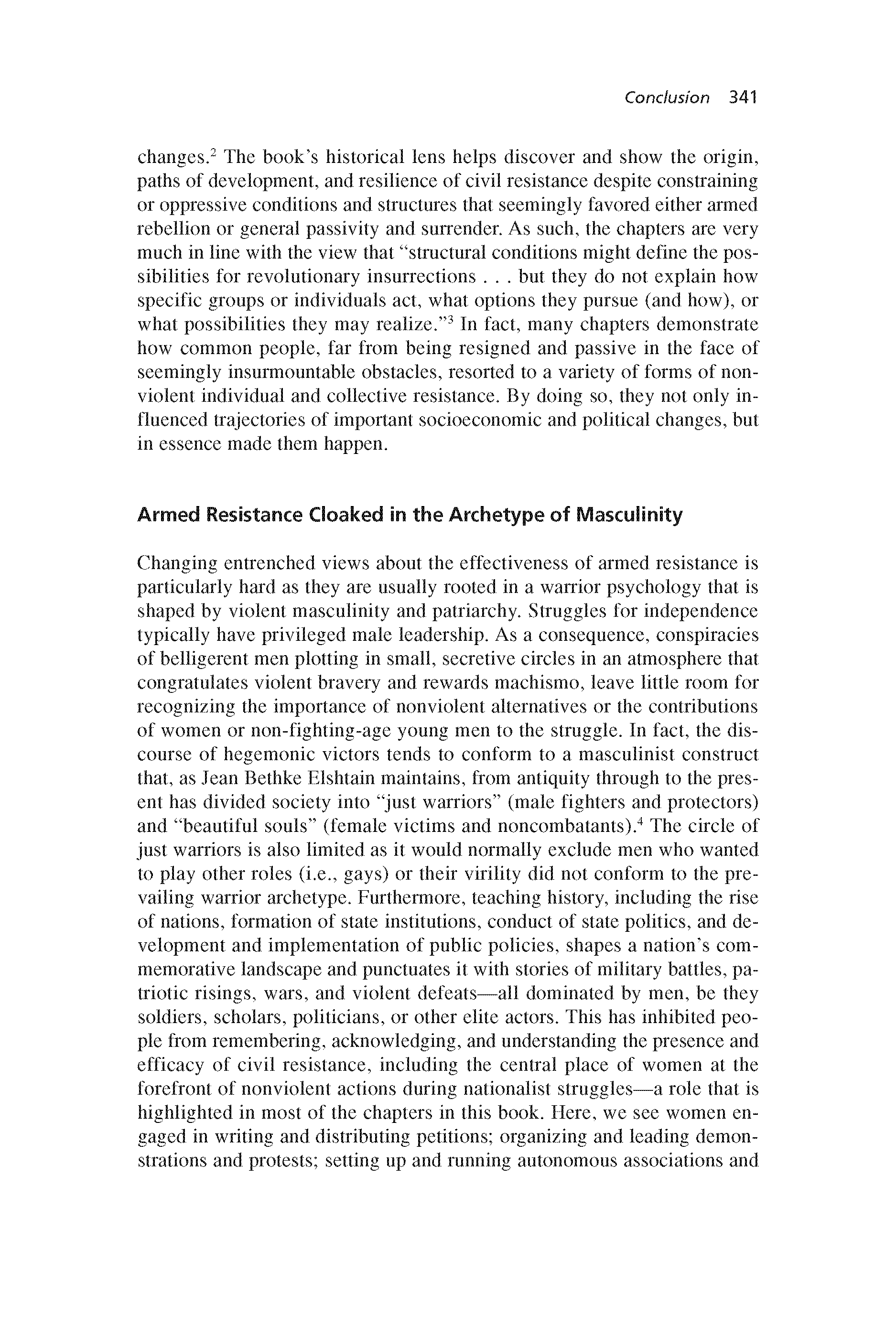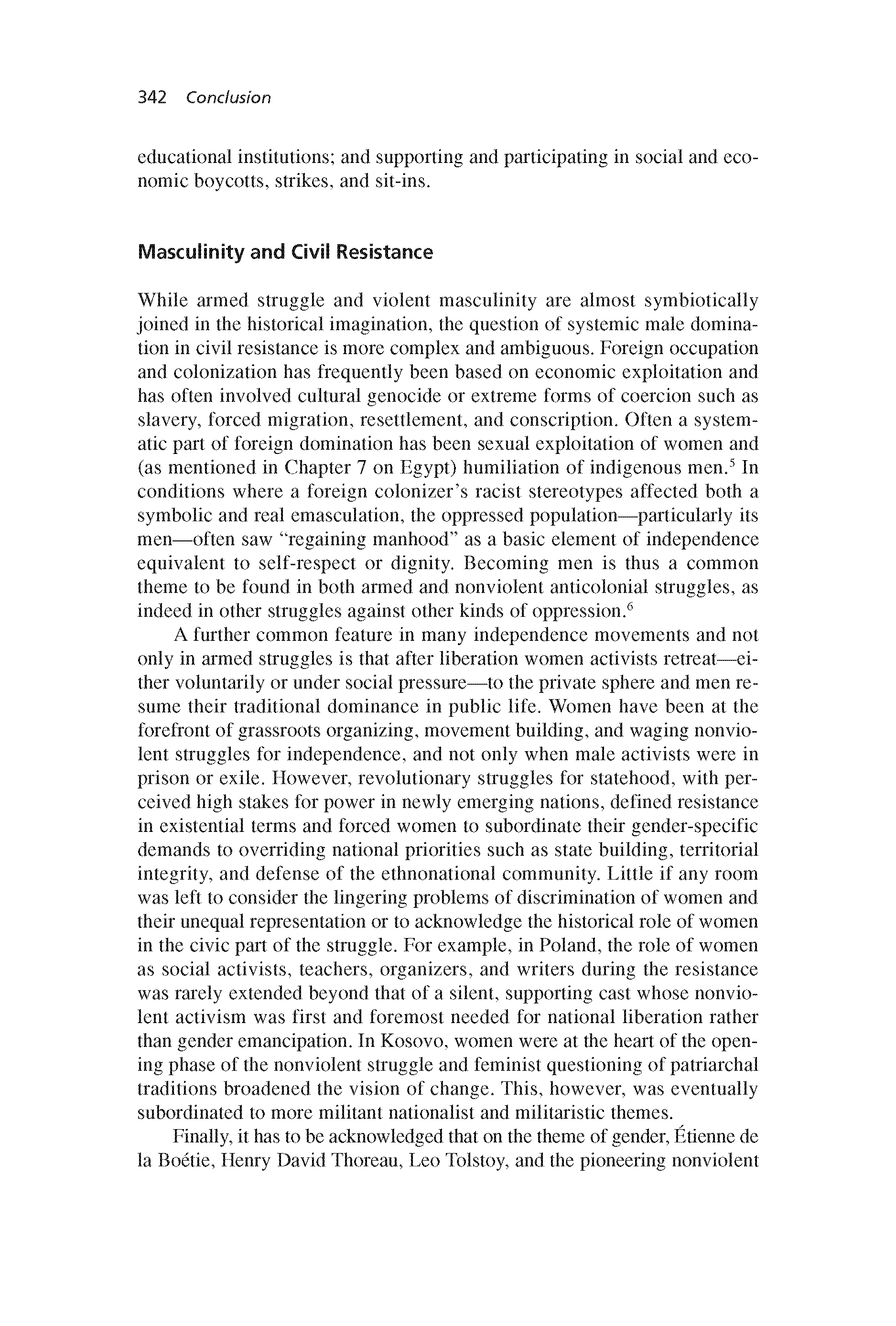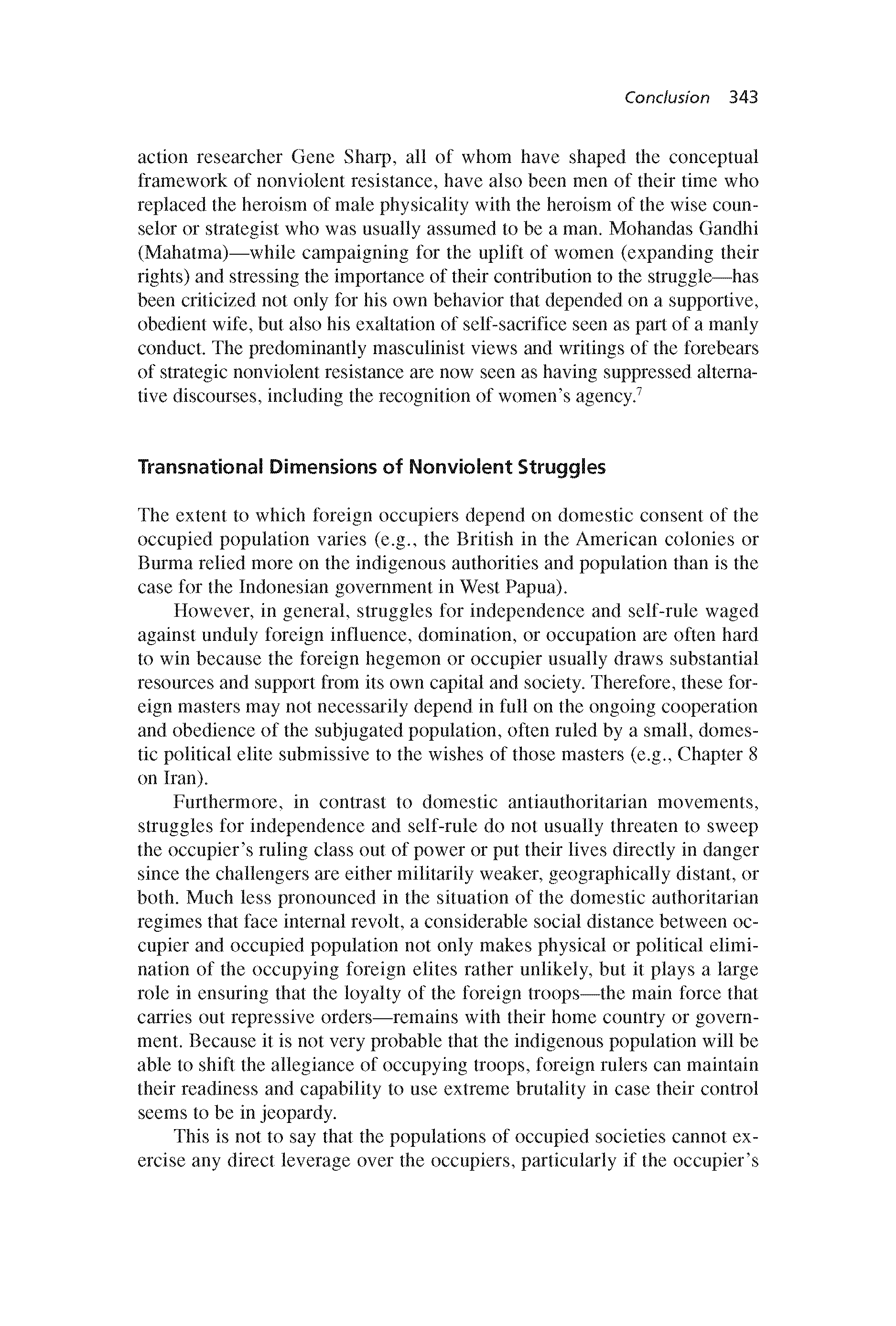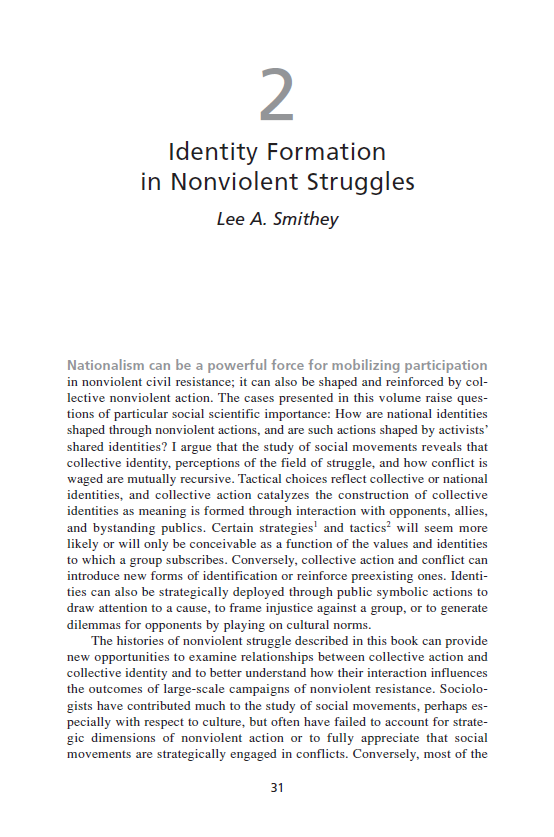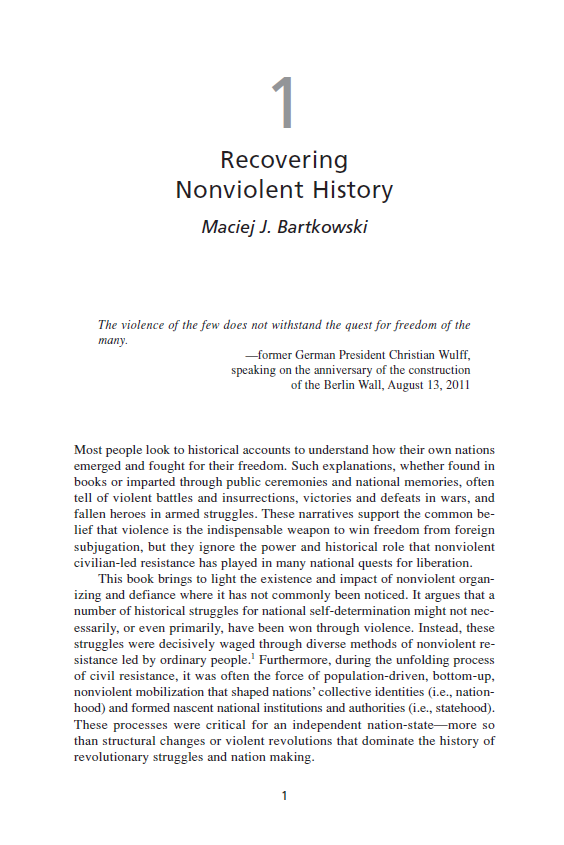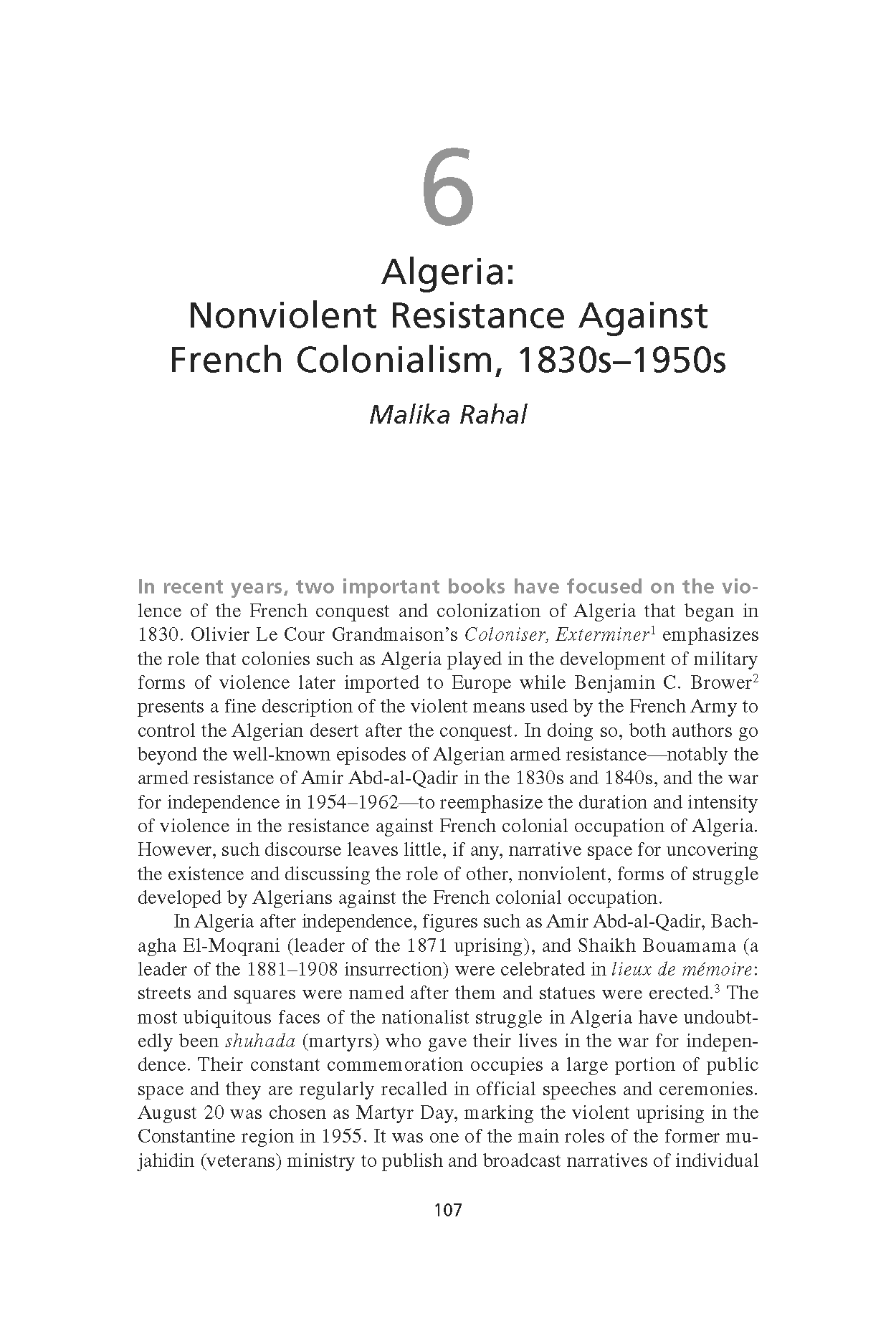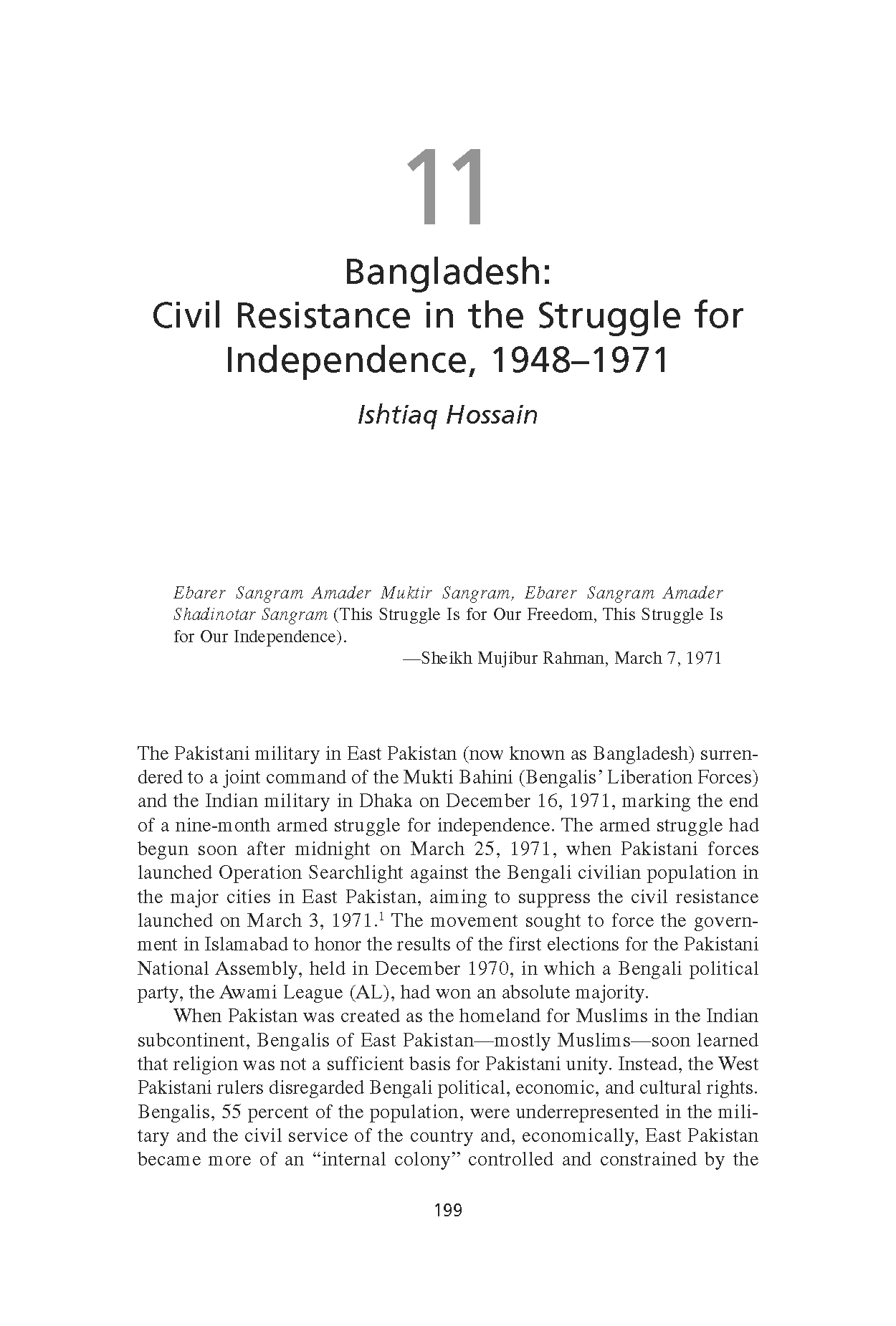Insights into Nonviolent Liberation Struggles (Chapter 18 from ‘Recovering Nonviolent History’)
Throughout this book, the authors have noted that civil resistance often remains unexamined by researchers and historians because the ordinary people who engage in civil resistance are seen as weak and lacking political power, particularly in relation to oppressive state structures and unfavorable conditions. State power is material and predicated on its monopoly of violence. When the state uses its superior means of violent coercion against unarmed populations, the expected outcome is either subordination or annihilation (genocide or politicide) of any nonmilitary and, thus, powerless party. The prevailing view is that those struggling for indepen dence can face oppression and reduce the asymmetry of force only if they take up arms. Resisting an opponent or occupier violently is seen as the sole option for the downtrodden, short of surrender or inaction […]
From the book ‘Recovering Nonviolent History: Civil Resistance in Liberation Struggles‘, 2013
